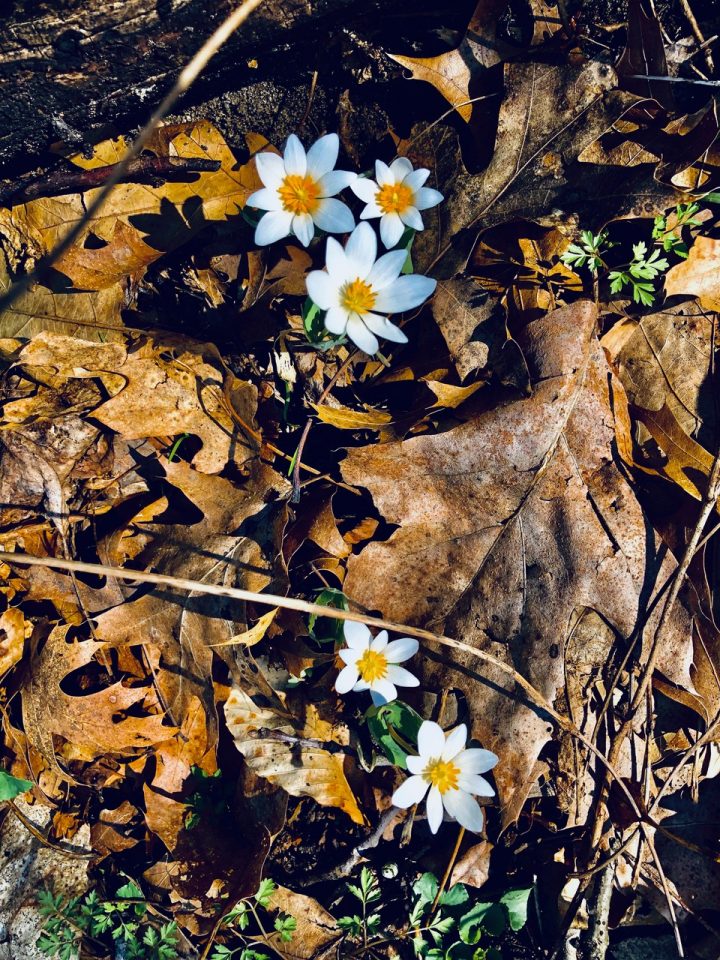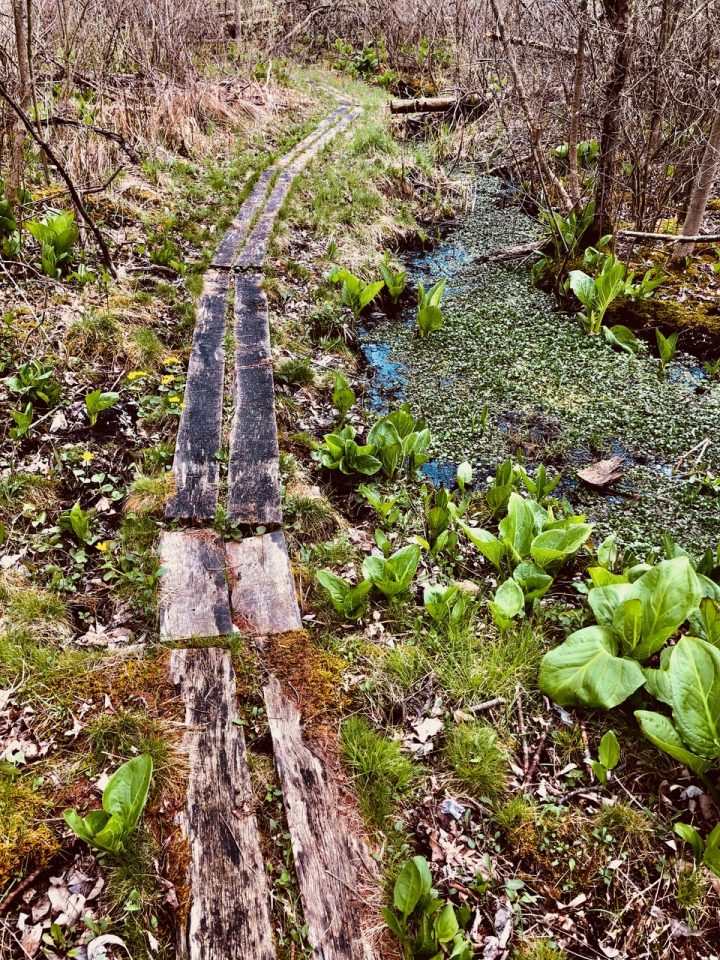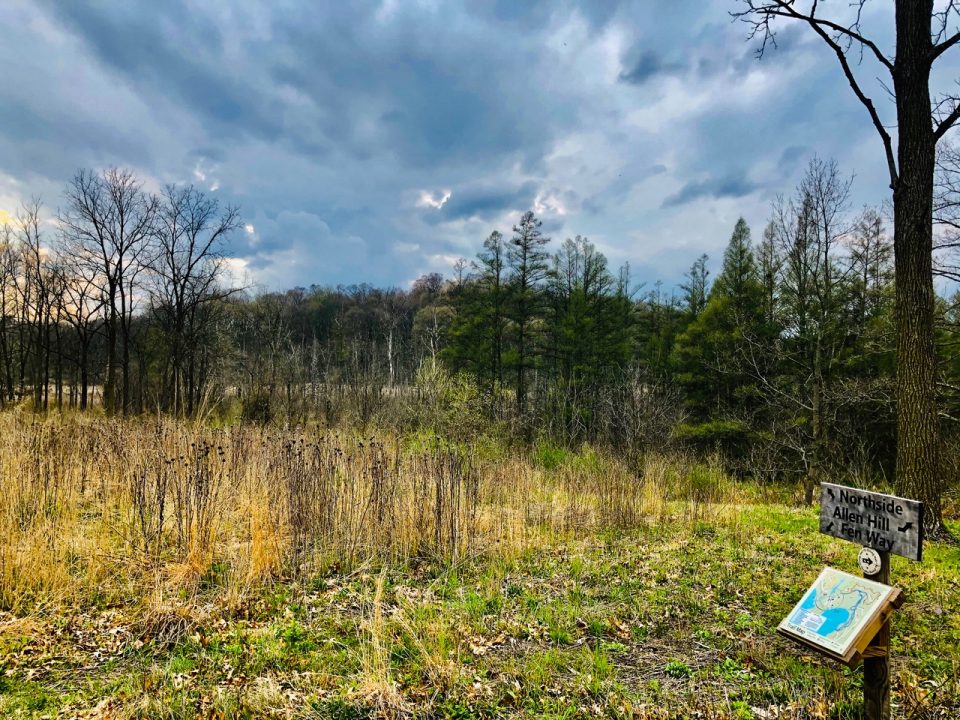Skye has been serving as the sustainability assistant at camp since August, working closely with our outdoor education programs and land management. She graduated from Goshen College (’19) with a degree in environmental science. As an Oregon native, she loves the outdoor lifestyle at Camp Friedenswald. The following reflection was written to share with the camp staff at a recent staff meeting.
One of the ways that I have been spending my time during this period of physical distancing is listening to a lot of podcasts. Every day, I go on a walk around camp and listen to some of my favorite shows. Last Friday, I listened to the TED Radio Hour: Meditations on Loneliness. It resonated with me in ways that I wasn’t really expecting, so I thought I’d share some it with you.
I’ll focus on the reflections of Susan Pinker, a developmental psychologist who studies loneliness. She reminds us that “if you are feeling lonely during social distancing, you are not alone. Real social contact is a biological need just like eating, drinking, and sleeping. Our bodies react to the loss of that interaction in the same way our bodies react to hunger, its physically painful, its damaging, it’s even dangerous long-term. As a social species, we need to see the whites in each other’s eyes to know that we trust each other, we need a slap on the back, or a hand shake, or a hug.” When we are isolated from others, we miss all of the social signals that have been essential to the evolution of our species.
Even before social distancing, social isolation was the “public health risk of our time.” A quarter to a third of the US population was considered to be “chronically lonely,” with very few to no people they could rely on. Obviously, this is a major problem since face-to-face contact sets off important hormonal responses. “Social interactions release a whole cascade of neurotransmitters” that help your body function in the present and into the future. “Shaking hands or giving someone a high-five releases oxytocin, a hormone that increases your level of trust and lowers your stress, and dopamine is generated which gives you a little high and kills pain.”
To show how important social interaction is, Susan Pinker looked at some of the predictors of living a long life. Clean air was a relatively weak predictor, exercise was a moderate predictor, but near the top were two types of social interaction. The top predictor of a long life was having close relationships, those people you can count on for everything, those you seek out in tough times, the ones that you are most likely reaching out to virtually during this time. Although, you might notice that video chatting doesn’t quite feel the same. It’s not just that audio lag and freezing are annoying, these disconnects make video interactions different enough from true contact that they don’t lead to the release of certain neurotransmitters. When we aren’t together, we don’t echo body language in the same way our bodies are used to. While technology is essential for connection during these times, this serves as a reminder that it can never replace the real thing.
This made me think about how important places like camp are for bringing people together-creating community and social contact, it’s a place to create and maintain those strong social bonds. Camp can play a great role in working against loneliness into the future.
The second predictor of a long life was more surprising. It’s the social integration of both strong bonds and something known as ‘weak social bonds.’ These are connections with the barista you see every morning, the person who delivers your mail, or someone you pass on your way to work. Those interactions are one of the strongest predictors of how long you’ll live. During social isolation, many of these ‘weak’ interactions are missing, but they are also popping up in new places as everyone is experiencing new levels of loneliness. Hiking the trails here at camp offers me an opportunity to form new ‘weak’ bonds with those also out enjoying nature. You may have noticed a release of oxytocin as you’ve greeted someone these days, even more than normal, because you are craving it so strongly.
On Sunday, with this podcast in the back of my mind, I attended my home church in Oregon via Zoom. My pastor also mentioned feeling lonely and isolated in the time, not just from others, but in struggling to be in relationship with God during this time. He was preaching about the disciples on the road to Emmaus being unable to recognize Jesus. He wondered if maybe they had been unable to recognize Jesus because they had stopped searching and seeking him out after his death. Just like the disciples on the road, it can be hard for us to seek out the good and seek out God during these times. My pastor reminded us that God is somewhere in all of this. God hasn’t left us alone. God just might be a little harder to recognize right now. We need to remember to seek God in the small things, in the small interactions we have with those walking by.
While this period of physical distancing is especially painful, by bringing loneliness into everyday consciousness and conversation, it could help us to deal with an our increasing risk of loneliness after physical distancing is over. We are conscious about reaching out to others during this time, and we need to continue reaching out after this passes. As Pinker says, “Hopefully, this time will help us recognize that social interaction and relationships are as important for health as eating good food and exercise, now that the spotlight is on loneliness and social isolation, we need to remedy it in our lives whether or not we have a pandemic.”

Early spring wildflower, bloodroot 
A home in a dead Ash 
Greening of the Fen Frolic 